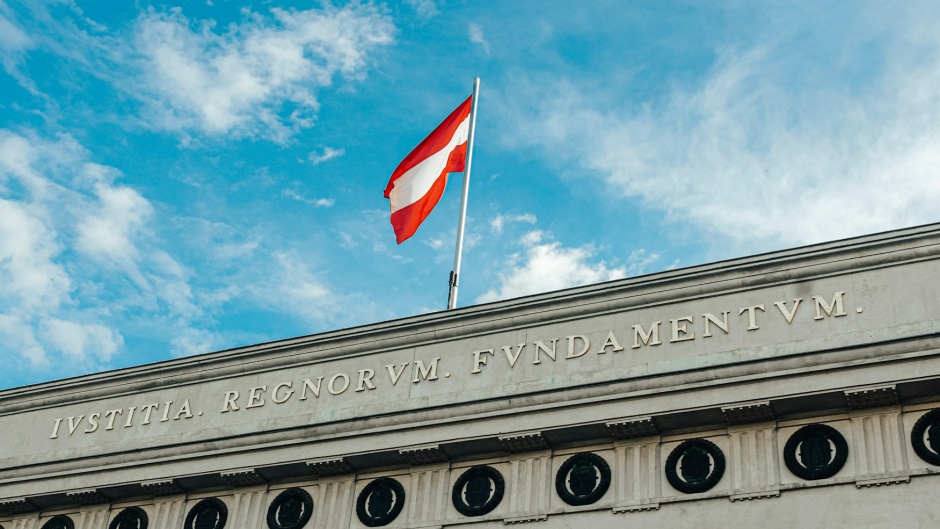Austrian evangelicals encouraged to assess candidates’ worldviews in elections marked by migration
“Pray that what is really in the hearts of the individual candidates is revealed”, says Oliver Stozek, leader of the Austrian Evangelical Alliance.
VIENNA · 27 SEPTEMBER 2024 · 10:21 CET

Austria, with its 9 million people, will decide on Sunday its political future in a national election that could give the victory to the far-right Freedom Party (FPÖ).
Polls say its candidate, Herbert Kickl, could win 27% of the vote, ahead of the Conservative People’s Party (ÖVP).
The party has never been so strong and is nationalistic messages have caused alarm among some analysts, who draw attention to the fact that among the founders of the FPÖ were former Nazis.
The country with most migrants
Due to its geographical position in the centre of Europe, Austria has been the European Union country that has received the highest percentage of immigrants in relation to its population.
“Remigration is long overdue”, favourite candidate Kickl has said during the electoral campaign, alluding to the idea that certain amount of migrants and their families should leave the country.
A source in the Austria says the debate around migration has been key in helping the FPÖ thrive, especially in rural areas of the country. Some Christians support the party’s positions, but many evangelical churches would disagree with the anti-migration rhetoric of the party as they work on a locel level to welcome both refugees and other migrants.
Evangelicals and the future of Austria
Evangelical Christians in Austria are a faith minority of between 50,000 and 60,000 believers, Oliver Stozek told Evangelical Focus. He is the general secretary of the Austrian Evangelical Alliance (ÖEA). In answers to this website, he addressed some other challenges the country faces today.

Oliver Stozek, general secretary of the Austrian Evangelical Alliance. / Photo: ÖEA. Question. On Sunday, Austrians elect a new parliament for a new government. What have been the topics discussed by the parties and media in these weeks of campaigning? What issues are regular Austrians are most concerned about?
Answer. Migration is a topic that is very present in the media. Even if simple answers are very convenient, they don’t exist for this, as for most political issues.
Another issue that concerns many Christians is that abortion has been raised by various parties on the more left-wing spectrum, such as the demand for a legal right, nationwide provision and cost coverage.
But there was also a campaign to ban harassment in the vicinity of abortion clinics and thus also prayer and even silent prayer. It was claimed that the aim was to protect pregnant women from harassment, although there is no case in which a woman has reported harassment (which is already a criminal offence). This campaign was partly a direct smear campaign against evangelicals.
However, the last few days have been quieter in the election campaign due to the floods.
Q. The FPÖ and its leader, Herbert Kickl, may win the election by a small margin. How do you see him?
A. As the Evangelical Alliance, we do not take a position on parties as a whole. We are aware that there are Christians in all parties, and issues on which Christians of the same faith may not agree, so we advise everyone to look at closely at the worldview behind a party and a candidate.
Q. How many evangelical Christians (according to the Evangelical Alliance’s definition of what it is to be “evangelical”) are there in Austria? Do you see a growth of the churches and positive missional impact in society?
A. If we add up those who are in the partner networks connected with us, we come to around 45,000 evangelicals within the Evangelical Alliance network. We can only estimate how many “evangelicals” there are outside our network, for example in the Catholic Church, but we assume that there are between 50,000 and 60,000 evangelical Christians in Austria.
In the last few decades there has been a significant overall growth within the organised and non-organised free evangelical churches. And at the same time, the Lutheran and Catholic Churches as a whole are experiencing a sharp decline in membership, although this seems to affect liberal congregations in particular.
Within the local evangelical congregations of the mainstream churches, the decline in membership is far less pronounced.
Q. Do you have any statistic or impression of how Christians feel about migration, the economy, nationalism, and the future?
A. As far as I know, there are no statistics on this, so I can only say that there are certainly very different opinions on this. However, I am convinced that it is important to be balanced on such issues and to realise that God has good plans for us and that there is therefore always reason for hope and joy, regardless of the circumstances.
Q. How can people pray for Austria?
A. It is very important to pray for the elections and the coalition negotiations. First of all, of course, it is important to pray that God’s will is done and that the right people come into parliament. Pray that what is really in the hearts of the individual candidates is revealed, that we get a government of the centre and that radical forces cannot push through their agendas.
One more year
Learn all about our #OneMoreYearEF campaign here (English).
Published in: Evangelical Focus - europe - Austrian evangelicals encouraged to assess candidates’ worldviews in elections marked by migration
